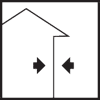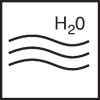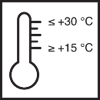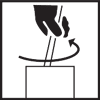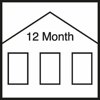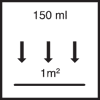Article No. 390005
Opaque, water-based sealing filler for spraying
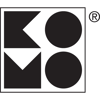
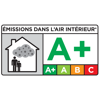
Product specifications
The stated values represent typical product characteristics and are not to be construed as binding product specifications.
Field of application
- For use on interior and exterior wood
- Soft and hard woods
- Dimensionally stable wood building elements: e.g. windows and doors
Properties
- Very good adhesion to the substrate
- Good build on the surface
- High degree of pore filling
- Quick-drying
- Good sanding properties
- Very good covering power
- Excellent protection against discolouration caused by water-soluble substances contained in the wood
- Excellent protection against surface defects caused by substances contained in specific types of wood (e.g. larch)
-
Preparation
-
Substrate requirements
The substrate must be clean, dry, free of dust, grease and loose substances, and prepared in the correct manner.
Dimensionally stable wood building elements: wood moisture content 11-15%
-
Preparations
If necessary, impregnate non-resistant woods with a wood preservative* (*Use biocides safely. Always read the label and product information before use).
Pre-treat wood surfaces with a suitable primer.
If necessary, protect parapet joints with Induline V-Joint Protection or Induline AF-920.
-
-
Application
-
The values given are based on undiluted material. The best spraying pattern is achieved if the material has a temperature of 15-20 °C.
Ensure good ventilation.
If necessary, check compatibility with the substrate and sealing effect by applying a trial coat.
Airless spraying: nozzle size: 0.28-0.33 mm; material pressure: 90-120 bar.
Air-mix spraying: nozzle size: 0.28-0.33 mm; material pressure: 70-90 bar, atomiser air pressure 1-2 bar.
Flow cup gun: nozzle size: 2.0 - 2.5 mm; atomiser air pressure: 2.0 - 3.0 bar.
Carry out intermediate sanding before applying a final coat: P 220-240, remove sanding dust.
Seal opened containers well and use contents as soon as possible.
-
Application instructions
-
Check colour, adhesion and compatibility with the substrate by setting up a trial area.
Before coating technically modified woods and wood-based materials, apply the product to a trial surface and conduct a suitability test on the desired area of use.
Prior to full application, please apply a test coat to a sample area under practical conditions using the desired system, then test or examine the surface properties.
With water based coating systems, there is always a residual risk that substances contained in the wood will cause discolouration.
Bleeding resin is a natural phenomenon and cannot be prevented by coating measures, see BFS Code of Practice No. 18.
The product's sealing effect may be impaired if it is diluted too thinly, if the wood is too wet or if the recommended coating sequence, application volumes and drying times are not observed.
Observe current standards and guidelines for coating wood building elements outdoors (Codes of Practice issued by the German Association of Window and Facade Manufacturers (VFF), Code of Practice No. 18 issued by the German Federal Committee for Paint and the Protection of Material Assets (BFS), guidelines issued by the German Lacquer and Printing Ink Association (VdL) and ift guidelines issued by the Institut für Fenstertechnik).
The system finder on our website www.remmers.com contains coating recommendations for specific wood types to be used when treating windows and exterior doors.
-
Drying
Dust dry: after approx. 30 minutes
Ready for sanding and next coat: after approx. 4 hours
If forced drying is used, ready for next coat: after approx. 115 minutes
(20 minutes flash-off time at approx. 20 °C and 65 - 75% RH / 75 minutes drying time at approx. 45 °C, 1 m/s air circulation / 20 minutes cooling time)Practice values at +20 °C and 65% relative humidity.
Low temperatures, poor ventilation and high humidity delay drying.
-
Thinning
Dilute with water if necessary (max. 5%).
-
Working tools / cleaning
-
Hand spray gun, automatic spraying equipment, flow cup gun
-
Clean tools with water or Aqua RK-898 Cleaning Concentrate immediately after use.
Ensure that any residue from cleaning is disposed of correctly.
-
Storage / shelf life
-
If stored unopened in its original container in a cool, dry place and protected against frost, the product will keep for at least 12 months.
-
Usage
-
Approx. 150 ml/m² per coat
(corresponds to wet film thickness of approx. 150 μm, dry film thickness of approx. 70 μm)
-
General information
-
Sealing compounds must be compatible with the coating and may only be applied once the coating has dried thoroughly.
Only use sealing profiles that are free of plasticisers.
Wood building elements which have been treated with an intermediate coating should not be exposed to weathering until a finishing coat has been applied.
-
-
Disposal instructions
-
Larger quantities of leftover product should be disposed of in the original containers in accordance with the applicable regulations. Completely empty, clean containers should be recycled. Do not dispose of together with household waste. Do not allow to enter the sewage system. Do not empty into drains.
-
-
Safety / regulations
-
For further information on the safety aspects of transporting, storing and handling the product and on disposal and environmental matters, please see the current Safety Data Sheet.
-

